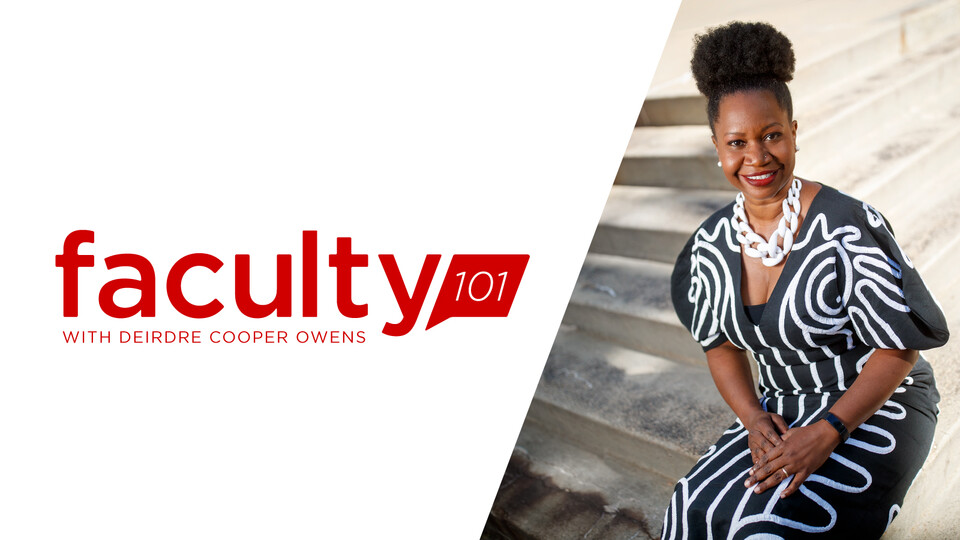Nominate a researcher
Welcome to “She’s a Scientist,” a new video series launched to highlight the work of female researchers on campus. “She’s a Scientist” videos started as part of Nebraska Today’s celebration of Women’s History Month 2021 and will continue as a regular feature through the year.
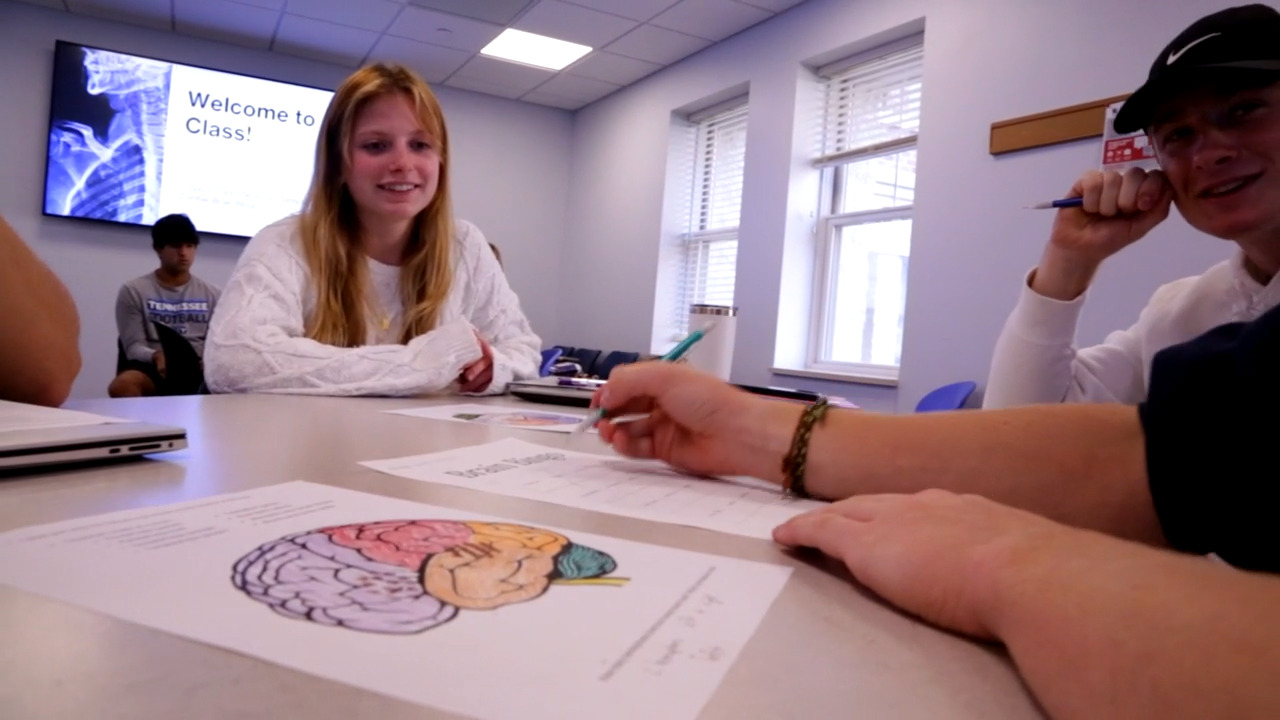
Zombie flicks help Huskers bite into neuroscience
Jacquelyn Omelian, assistant professor of practice in psychology at the University of Nebraska-Lincoln, teaches a course that is essentially an introduction into neuroscience. However, instead of using different disease models such as Alzheimer’s disease, she uses zombies as an example. The focus is to compare how damage to the brain can effect behavior and personality. Watch the video.
Wolff exploring what makes a dog a good service animal
She's a Scientist showcases London Wolff, a graduate student in psychology, and her research in the Canine Cognition and Human Interaction Lab. There, Wolff is exploring what makes a dog a good candidate for being a service animal in the hopes of streamlining selection and training processes. Watch the video
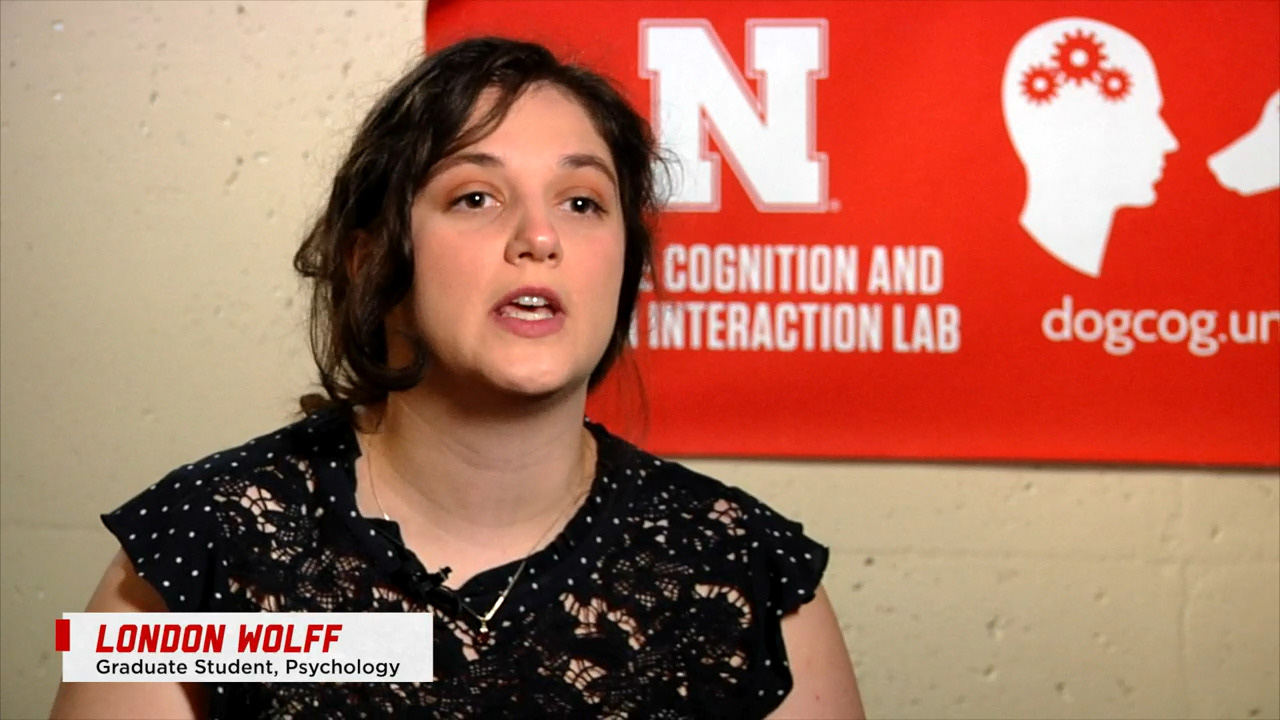
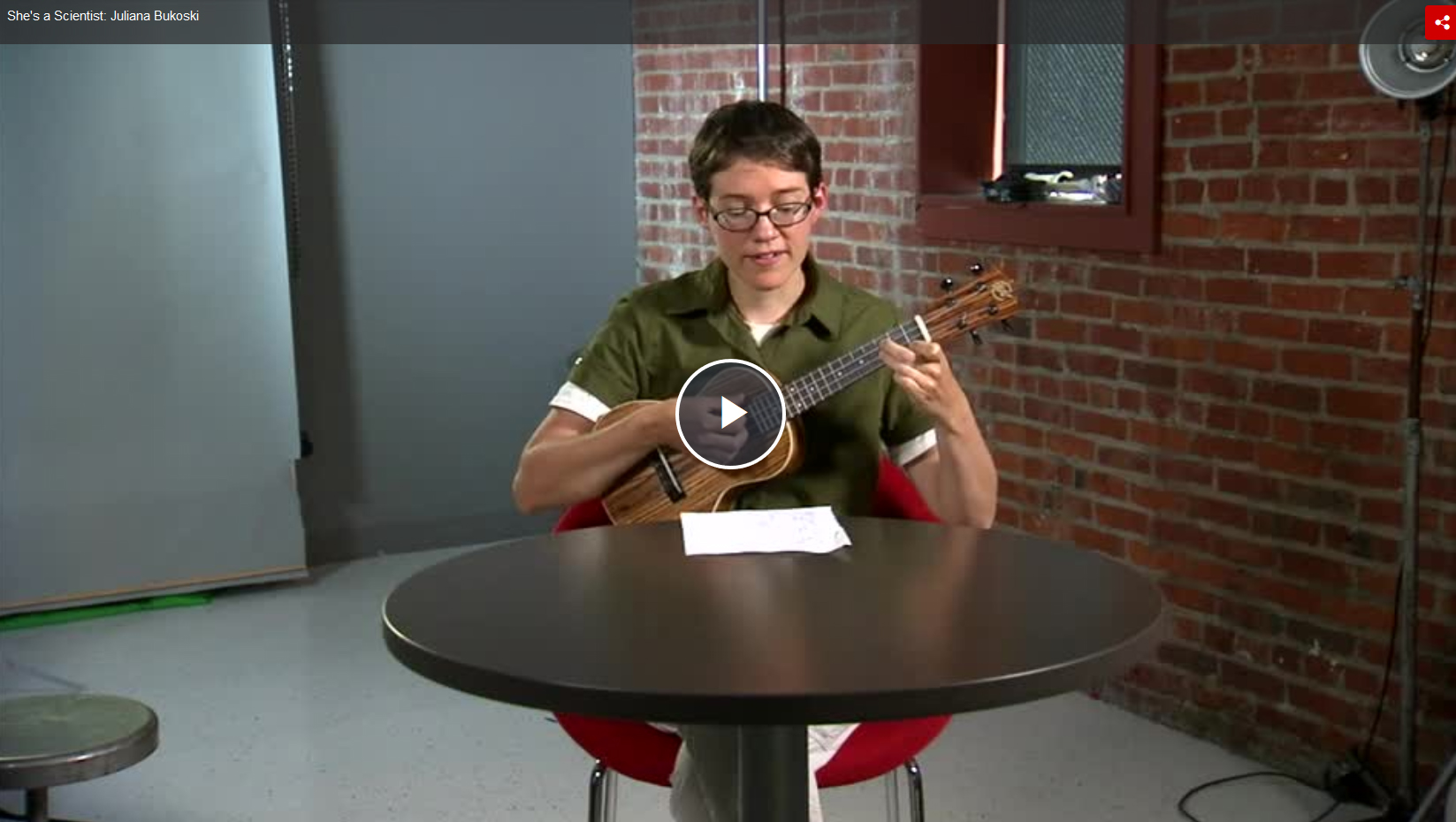
Bukoski melds math and song
Juliana Bukoski, a graduate student in mathematics who earned her Ph.D. in May 2021, turned a math lesson into a song. Bukoski, who wants to get more women to enter STEM fields, was victorious at the 2021 UNL Science Slam winner with this musical presentation, "Clocks, Chords, and Roots of Unity: A Love Song to Mathematics." Watch the video.
Fiore eyes Martian-like microbe for renewable energy storage
Nicole Fiore, a Ph.D. student in the School of Biological Sciences, and her wetlands search for a microorganism that uses calcium carbonate — a chalk limestone — as its sole source of carbon. Ultimately, the study is directed at seeing if the microorganism could be used as a renewable energy source. Fiore is advised by Dr. Karrie Weber. Watch the video
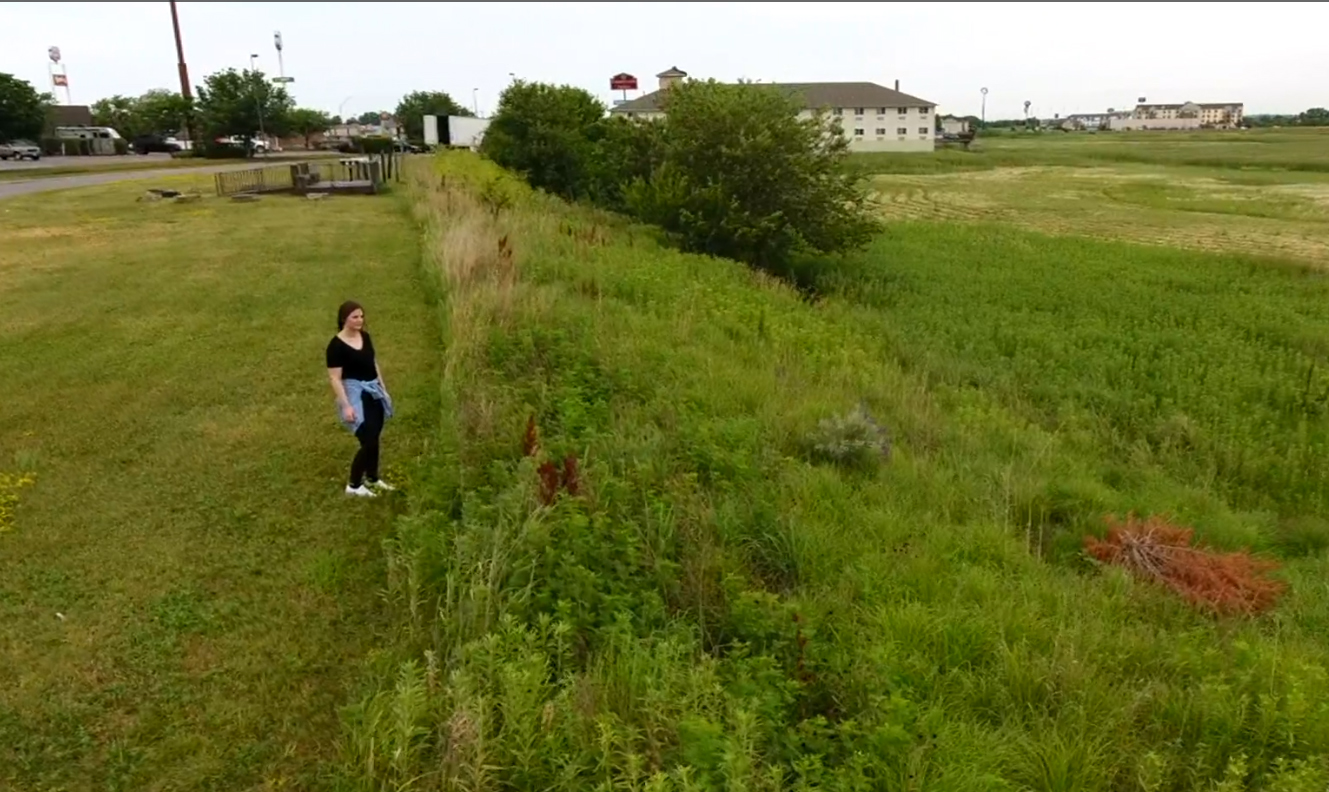
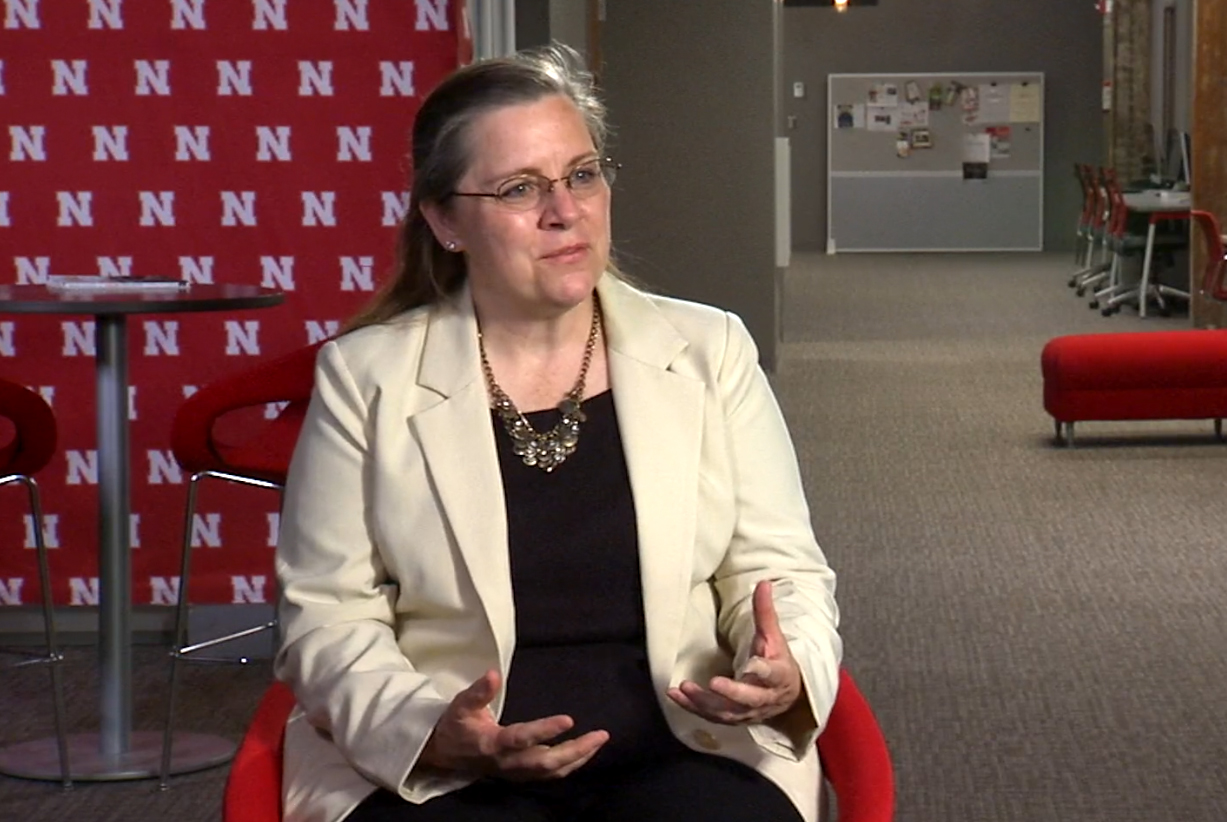
Sky is the limit for Stelling, her students
Karen Stelling, professor of practice in mechanical engineering, joined the UNL faculty after a 25-year career in the private sector. Stelling is the faculty adviser of the Aerospace Club, which was recently chosen to build a nano-satellite for NASA. She also helped develop the College of Engineering’s leadership curriculum. Watch the video.
Corman taps waterways as a living lab to teach students
Jessica Corman, assistant professor of natural resources, is using the state’s expansive river system as a living laboratory to teach students about the importance of waterways. “I get to teach students that Nebraska isn’t just a land of corn,” Corman said. “Yes, there is a lot of corn around, but those fields would not survive without the streams, rivers, and lakes that also cover the landscape. And, those aquatic ecosystems are pretty incredible in their own right — they provide habitat for plants and animals and places for us to swim, paddle, or fish.” Through a four-year, $6 million National Science Foundation grant, Corman is also leading a four-institution team in building a first-of-its-kind database that includes information from streams, lakes and other inland water systems across the nation. Once built, the database will unlock major potential in ecological stoichiometry, a framework that may hold the key to understanding large-scale environmental patterns triggered by a mismatch between the elements available in the environment and those needed by organisms. Watch the video
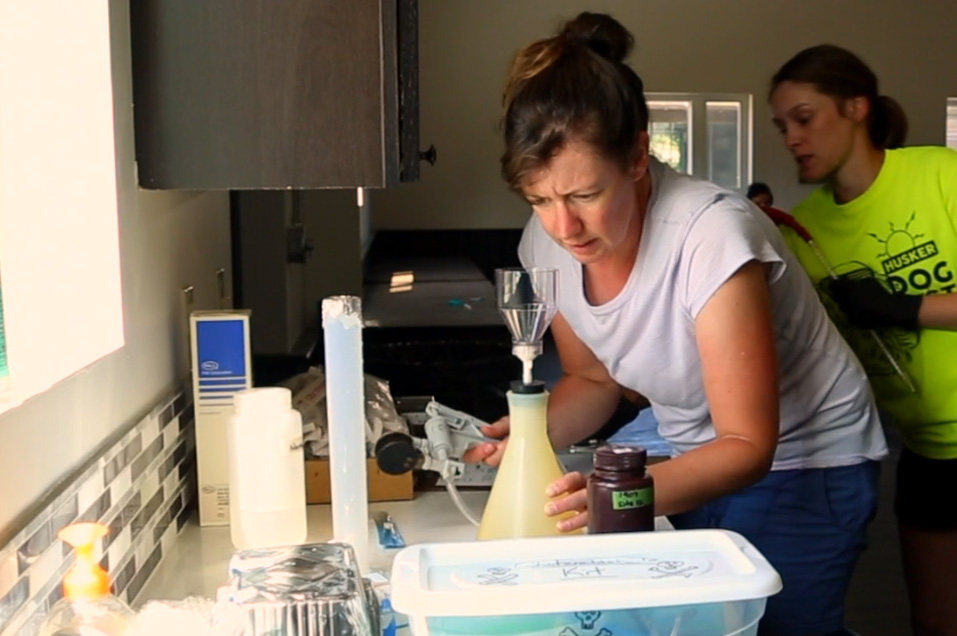

Thompson’s drone work helps inform, improve producer decisions
Laura Thompson, an associate extension educator with Nebraska Extension, uses sensor-laden drones to fly over farms, collecting data that is used to show producers how to save money. The work is part of the Nebraska On-Farm Research Network, which collaborates with farmers to test new methods and technologies. Learn more about Thompson's work. Article
Wachs's back pain research may help reduce opioid dependency
Rebecca Wachs, assistant professor of biological systems engineering, is studying new ways to treat chronic lower back pain. Ultimately, her work could help reduce opioid addiction as the drug is prescribed in roughly a third of low back pain cases. Click through to watch a video about Wachs’ research. Learn more about Wachs. Video
2022: NIH grant to help Wachs isolate causes of low back pain
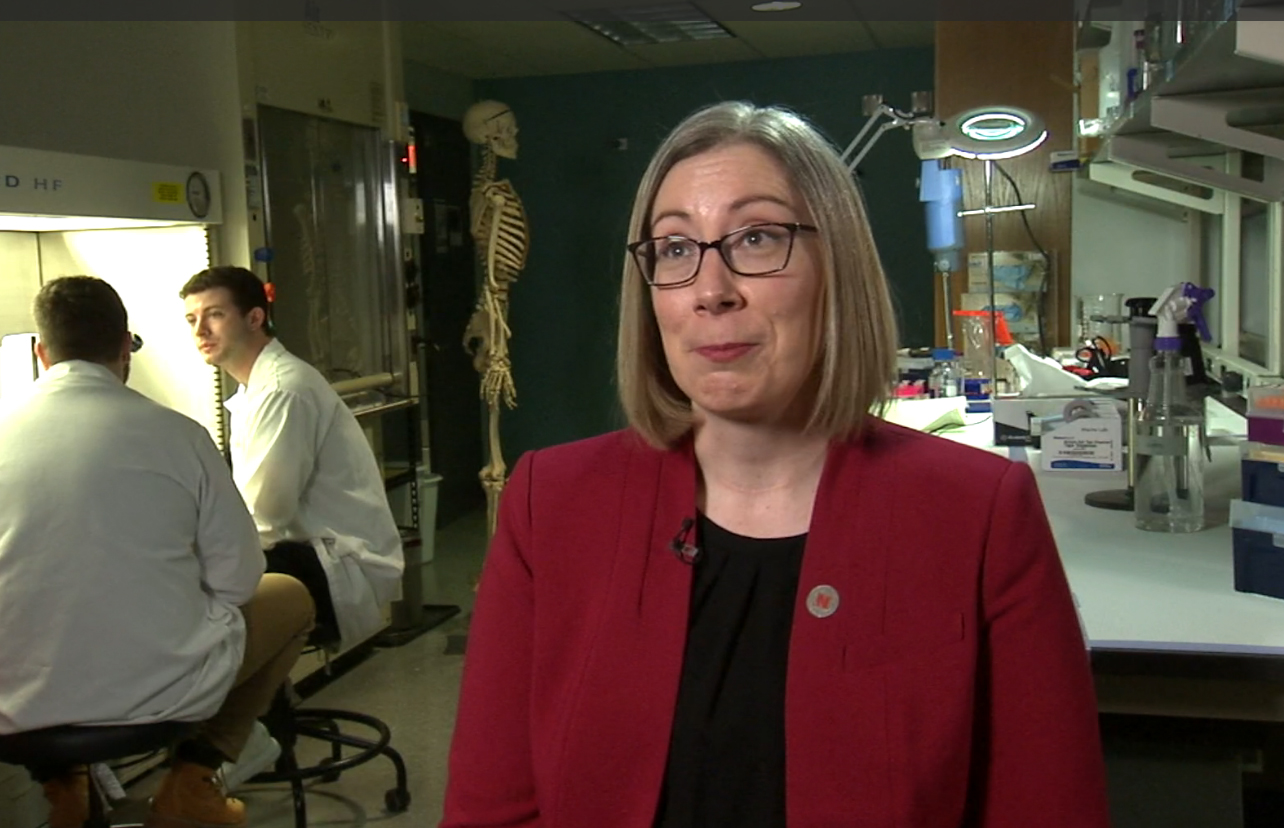
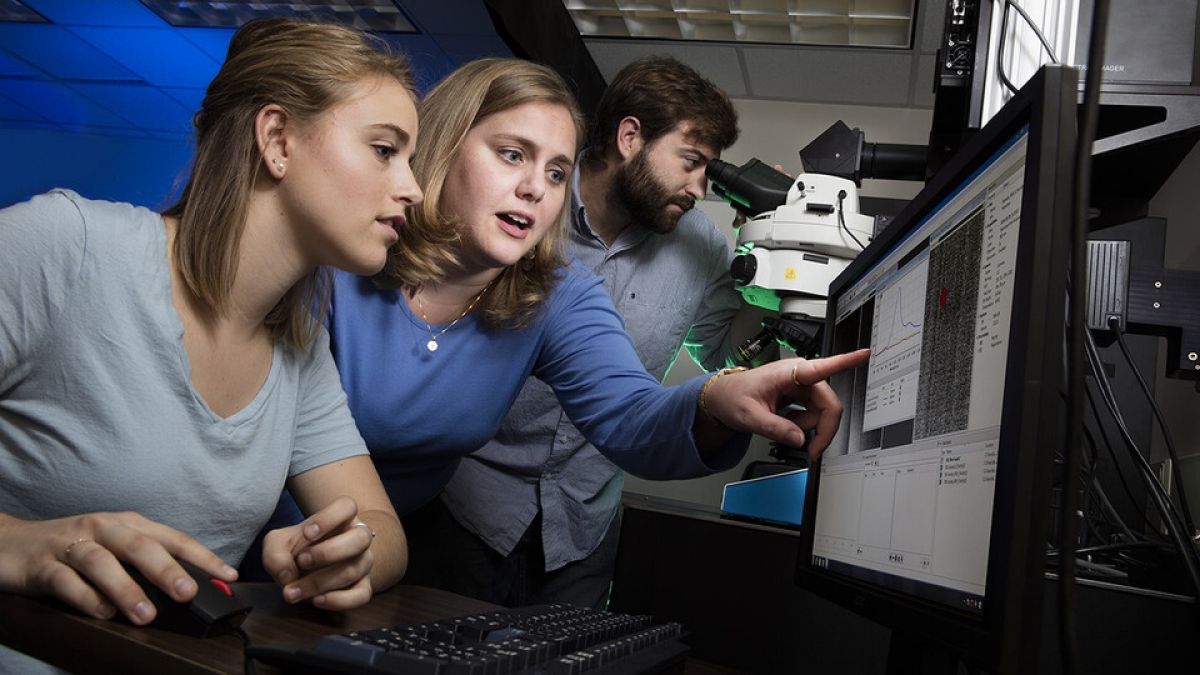
Iverson using biomedical engineering to create sensors that could detect diseases in cells
Biomedical engineer Nicole Iverson uses nanotechnology in the hopes of creating sensors that will detect diseases inside human cells. Learn more about Iverson's work. Video
In the News, 11/12/20: Husker research team earns grant to improve nitric oxide sensors
Engineered microbe excels at ‘breathing rubber,’ could curb reliance on petroleum
Burning rubber? Tired. Breathing rubber? Inspired. The single-celled microorganisms known as methanogens are, no surprise, known for emitting methane: in the guts of humans and other animals, in hydrothermal vents that gash the ocean floor — almost anywhere, really, that oxygen is not. But biochemist Nicole Buan and colleagues at UNL have now genetically engineered a species of methanogen that can also yield sizable amounts of isoprene, the primary chemical component of synthetic rubber. Promisingly, that isoprene production substantially outpaces the yields of other microorganisms engineered for the same purpose. Learn more about Buan’s work. Article
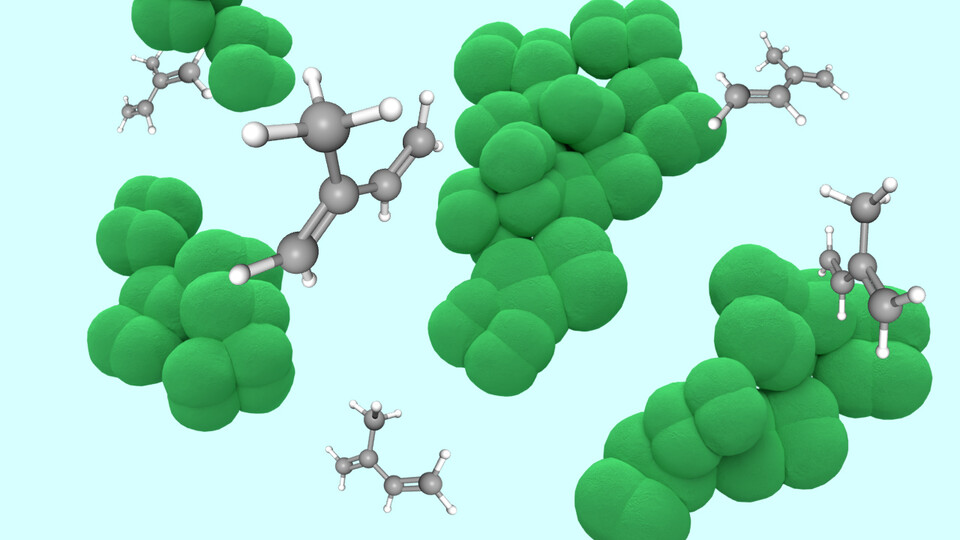
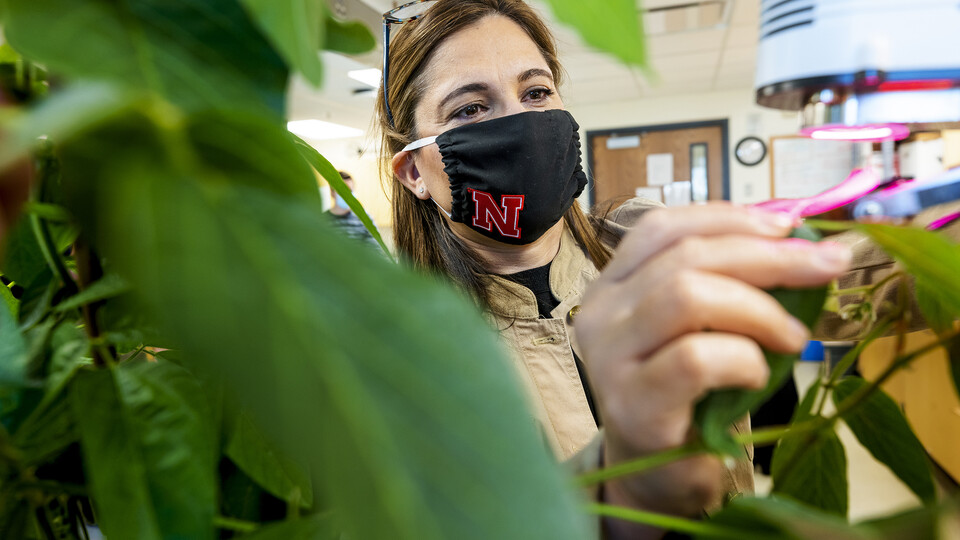
Plant ecophysiologist Awada talks effect of climate change on Nebraska vegetation
Plants and their environments can tell us much about how the planet is changing, and what may come next. Tala Awada, a physiological plant ecologist and associate dean for research in UNL's Agricultural Research Division, has spent years learning about climate change through the study of trees and plants. She’s also trekked through the Nebraska Sandhills and the pine forests of Greece to study plants in their environments and solve problems, such as the management of invasive species, changed ecosystems and disease. Learn more in this Asked and Answered Article
Hebets discovering, sharing wonders of arachnids
Eileen Hebets, Charles Bessey Professor of biological sciences. Hebets conducts world-class research and outreach on the wonders of arachnids, spinning their extraordinary feats of evolution into broader lessons on the natural world. Learn more about Hebets’s work. Video
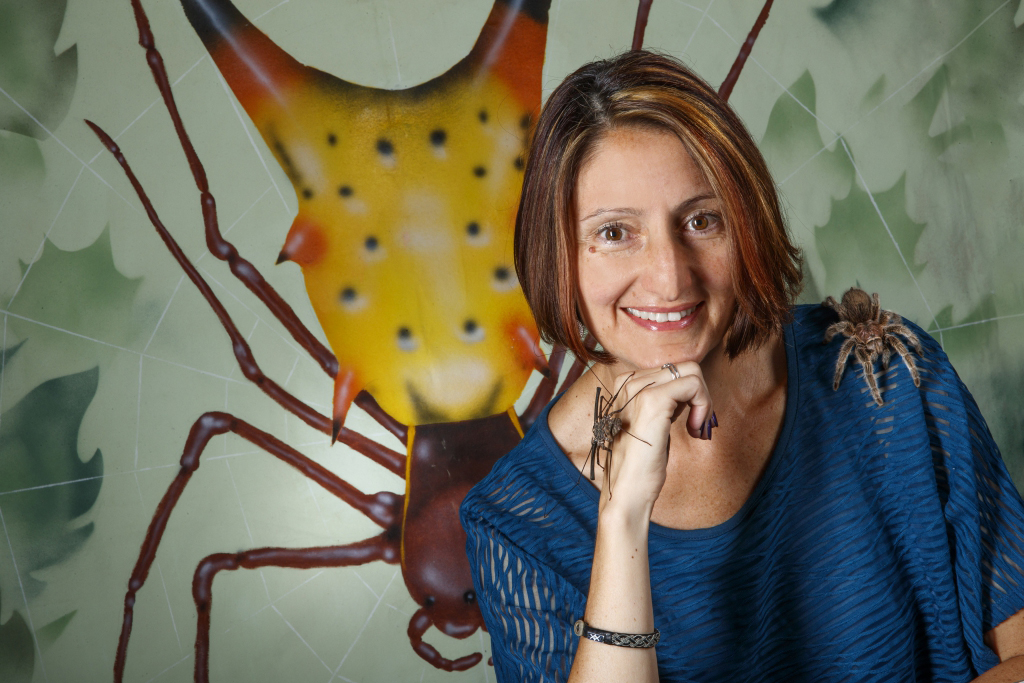
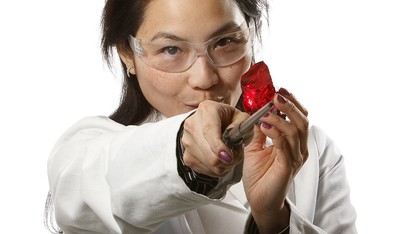
Lai melds magic, Harry Potter into chemistry lessons
The unique teaching approach of Rebecca Lai, associate professor of chemistry, melds magic and Harry Potter to teach Huskers about the basic elements of chemistry. Learn more about Lai’s work. Video
Sharif’s eye-tracking study aids software developers
Bonita Sharif, associate professor of computer science and engineering, and her research uses eye-tracking technology to help software developers write better code. Learn more about Sharif's work. Video
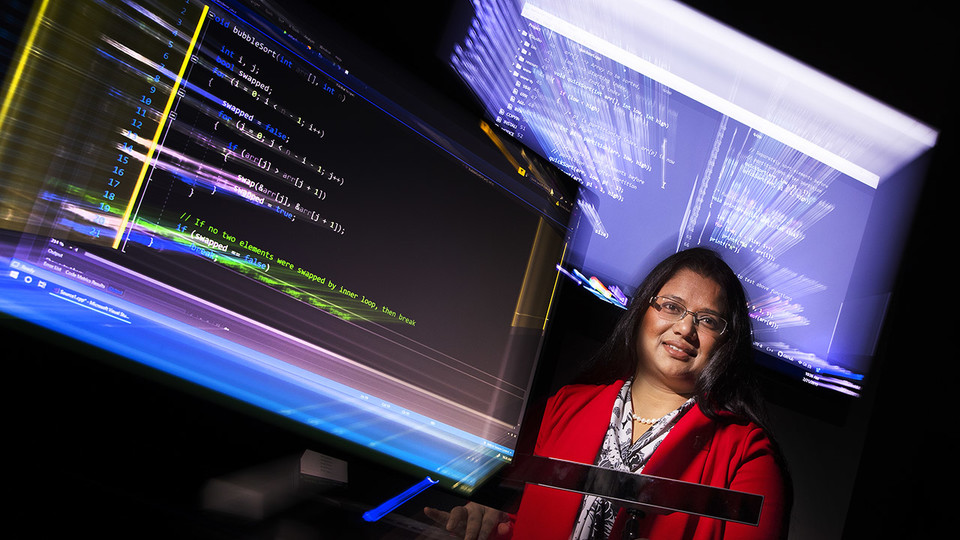
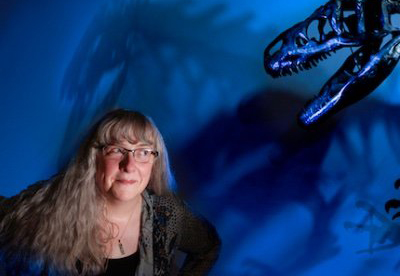
Lyons examines fossil records across space and time
Biologist Kate Lyons looks to the fossil record of elephants and mammoths to predict the future of today's large mammal communities. Learn more about Lyons’s work. Video
Cooper Owens talks medical racism
Deirdre Cooper Owens, Charles and Linda Wilson Professor in the History of Medicine and director of the Humanities in Medicine program, describes her work interrogating medical racism — especially the experimentation on enslaved Black women — and how she approaches teaching students during grand rounds in medical schools and in her history classes here on campus. Cooper Owens also explains how structural and medical racism are making the COVID-19 pandemic disproportionately worse for communities of color. Podcast
